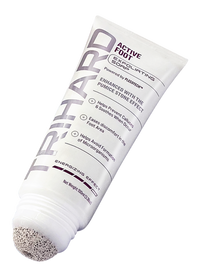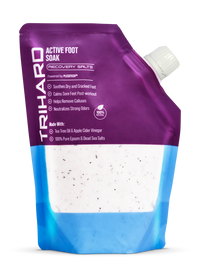Do You Have To Wash Your Hair After Swimming?
After swimming in the pool or ocean, many people head straight to the shower. But is it necessary to always wash your hair after swimming? Especially throughout the summer months, when it’s common to hit the pool every day, a daily shampoo may seem like a chore.
But a simple shampoo after swimming is the best way to strengthen, nourish, and protect your strands while sparing your scalp from uncomfortable itchiness. Read on to learn more about the importance of washing your hair after swimming and how to make it an invigorating part of your hair care routine.
What Happens if You Don’t Wash Your Hair After Swimming?
If you don’t wash your hair after swimming, pool chemicals will remain on your hair and scalp throughout the day and night. This can cause dry, brittle hair that’s more prone to damage, along with scalp irritation.
Chlorine’s Effect on the Hair and Scalp
Chlorine is the primary chemical in chlorine that can cause damaged hair and an itchy scalp. It kills bacteria, viruses, and parasites in pool water that can make swimmers sick. Chlorine also prevents algae formation, helping to keep pool water clean and clear.
Unfortunately, since hair is porous, it absorbs chlorinated water. If it’s not washed out promptly, chlorine can have the following adverse effects on your hair and scalp:
- Dryness
- Breakage
- Rough hair texture
- Frizziness
- Split ends
- Scalp itching
- Dandruff
Chlorine can also make hair more porous. This weakens the strands, increasing the risk of breakage and hair loss.

Is It Ok to Not Wash Hair After Chlorine?
It’s not ok to not wash hair after chlorine, as it can cause dry hair and scalp irritation. Over time, leaving chlorine in your hair after swimming can lead to lasting hair damage.
Washing your hair with an anti-chlorine shampoo is the best way to prevent damage from pool chemicals. This type of shampoo is created specifically to clarify the hair and scalp, removing chlorine without stripping hair of its natural oils.
Alternatively, you consistently wash your hair with swimmers shampoo after spending time in the pool, and this would keep your hair strong, healthy, and hydrated.
What to Do With Hair Before Swimming?
Before hitting the pool, you can take a few steps to protect your hair, including:
- Rinse your hair with clean water. By absorbing the clean water, your hair won’t be able to absorb as much of the chlorinated water.
- Consider wearing a swim cap, which can reduce your hair’s contact with pool chemicals. Make sure that the cap is the right fit for your head, and consider silicone, which is gentler on hair than latex.
- Use a pre-swim conditioner, like Trihard’s Pre & Post Swim Conditioner, which neutralizes pool chemical absorption. Use it as a leave-in conditioner to create a barrier between your hair and the damaging pool chemicals.
What to Do With Hair After Swimming?
The best thing to do with your hair after swimming is to shampoo and condition it ASAP. If poolside showers or locker room showers are available, pack your sports care products and use them as soon as you leave the water.
Post-Swim Haircare Routine
Try out this post-swim hair care routine to prevent unwanted effects from chlorine while nourishing your hair and scalp.
1. Wash out the pool chemicals.
Trihard’s Swimmers Shampoo is made to wash away harsh pool chemicals and deeply hydrate hair with a blend of nourishing oils. The formula features magnesium chloride, dead sea salts, and red algae, which join forces to eliminate pool chemicals and odors. Argan oil, shea oil, jojoba oil, keratin, and red algae hydrate dry strands, leaving it smooth, shiny, and healthy.
This Swimmers Shampoo also contains aloe vera and menthol, which work together with red algae to alleviate scalp irritation. For an added energizing effect, you can opt for Trihard’s Swimmers Shampoo Extra Boost, which contains extra menthol. This creates a cooling, refreshing sensation that helps prevent sweating post-swim.

2. Condition for moisture and nourishment.
Swimmers conditioner is a crucial piece of the puzzle for soft, hydrated post-swim hair. Not only does the chlorine in pool water strip hair of its natural oils, but prolonged sun exposure can exacerbate the resulting dryness. Conditioners that are formulated for post-swim hair are ideal, as they’re designed to restore hair’s moisture and texture.
Trihard’s Pre & Post Swim Conditioner utilizes proprietary cleansing technology with magnesium chloride, dead sea salts, red algae, and glycerin to offset adverse side effects from pool chemicals. Naturally-derived oils deeply hydrate dry, brittle locks, giving them a silky feel and a smooth appearance.
3. Dry off with a gentle towel.
The towel can make a difference in the health of your hair. Microfiber towels, for example, offer superior absorption and less friction when compared to cotton towels. With less friction, microfiber is gentler on hair and less likely to cause dryness or damage. Satin is another great option, although it’s less absorbent than microfiber.
How Often Should You Wash Your Hair After Swimming?
You should wash your hair every time after swimming. If you skip the anti-chlorine shampoo, the pool chemicals will settle into your hair and scalp, causing dryness, frizziness, and scalp irritation.
Post-Swim Shampoo for Colored Hair
Washing your hair after leaving the pool is especially important if you have colored hair. Hair dye makes hair more porous. Porous hair is more likely to absorb oxidized metals, like copper, in the pool water. This can lead to discoloration, particularly for those with blond hair.
To avoid green-tinged strands after spending time in the pool, wash your hair promptly. Then, follow up with a conditioner for soft, moisturized strands. By bundling Trihard’s sports hair care products, you can check both of these steps off of your list for healthy post-swim hair.
Trihard offers a 30-day money-back guarantee with all of its products. With this offer, you can take the plunge with anti-chlorine shampoo and conditioner risk-free. Shop online today to get started!































Lascia un commento